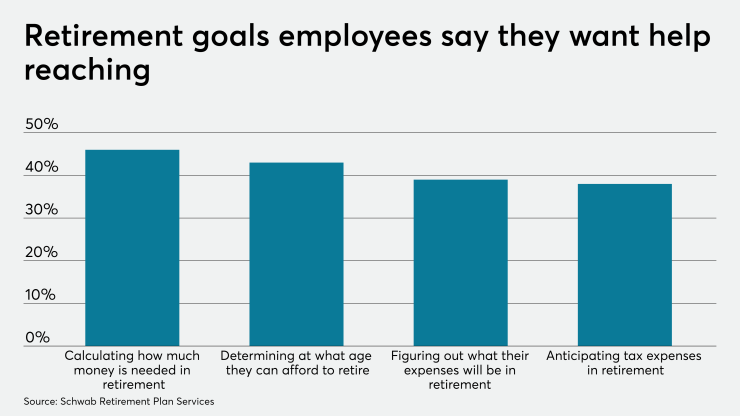As markets fluctuate and employees’ financial needs evolve, traditional retirement plans aren’t enough to secure a worker’s financial future anymore.
After a year of COVID-19 lockdown, tens of millions of employees have been thrust into economic turmoil. More than a third of workers have had to pull money from their retirement accounts in order to pay their bills, according to the Pew Research Center. Half of workers say the pandemic has made it more difficult to reach their long-term savings goals, Pew found.
This crisis comes just as U.S. employees were finding their footing after the financial crash of 2008. To help employees build a secure and long-lasting financial future, employers need to rethink how their retirement offerings are actually benefiting employees.
Read More:
“This is the second crisis in 10 to 12 years and it really put a spotlight on retirement savings in the U.S.,” says Harry Dalessio, head of institutional retirement plan services at Prudential Retirement. “In the private sector, defined contribution plans have become the primary retirement vehicle for the U.S. workforce. Employers and employees have to consider if retirement plans are set up to be a retirement plan or a savings plan in order to navigate these unpredictable fluctuations.”
Retirement has always been an elusive goal for American workers, despite the fact that 93% of employers offer a traditional 401(k) or similar plan and 59% of organizations offer a Roth 401(k) or similar plan, according to the Society for Human Resource Management. Twenty-one percent of Americans have no retirement savings, according to a study by Northwestern Mutual.
To help employees save for the long-term, employers need to help their workforce tackle their financial insecurity now. Indeed, only 40% of Amercians are prepared for an unexpected expense of $1,000, according to data from online personal finance resource Bankrate.
As the market continues to go through volatile swings, employers can step up and offer greater financial support with emergency savings benefits, Dalessio says.
Read More:
“Emergency savings is critically important and about short-term preparation, which allows for longer term savings and investment to take place,” he says. “If you're 30 years away from retirement, you have a lot of time to allow the market to bounce back. But, if you're in that red zone — right before retirement, at retirement or just past retirement — that could be devastating.”
Additionally, employers have to think beyond 401(k)s and other traditional retirement savings vehicles. While 401(k)s have become the main source of income for many, they were originally meant to supplement the funds an employee would get from guaranteed income, like a pension or social security.
Read More:
Instead, employers can offer options like healthcare savings accounts, emergency savings accounts and hospital indemnity insurance, says Charlie Nelson, CEO of retirement and employee benefits at Voya Financial.
“Employers need to focus on making sure they have [provided] the right benefit coverages, both for voluntary benefits like an HSA and in plan design,” Nelson says. “ Help them make sure they continue to save through auto enrollment escalation, as well as having that emergency savings vehicle.”
Read More:
Read More:
Planning for these unexpected expenses has become even more pertinent during COVID-19, Nelson says. When an employee is hit with healthcare costs that aren't covered by their insurance, they’re more likely to dip into other means of savings. While this solves a short-term need, it can be catastrophic for long-term financial health.
“Employers have to think about treating the problem, but also the symptoms that are impacting [retirement savings],” Nelson says. “One of the silver linings from COVID was the focus it put on savings and making sure that [employees have] adequate savings for short-term unexpected events, as well as the long-term in retirement.”






